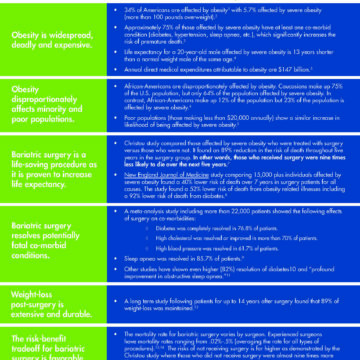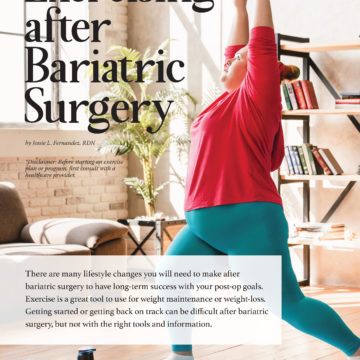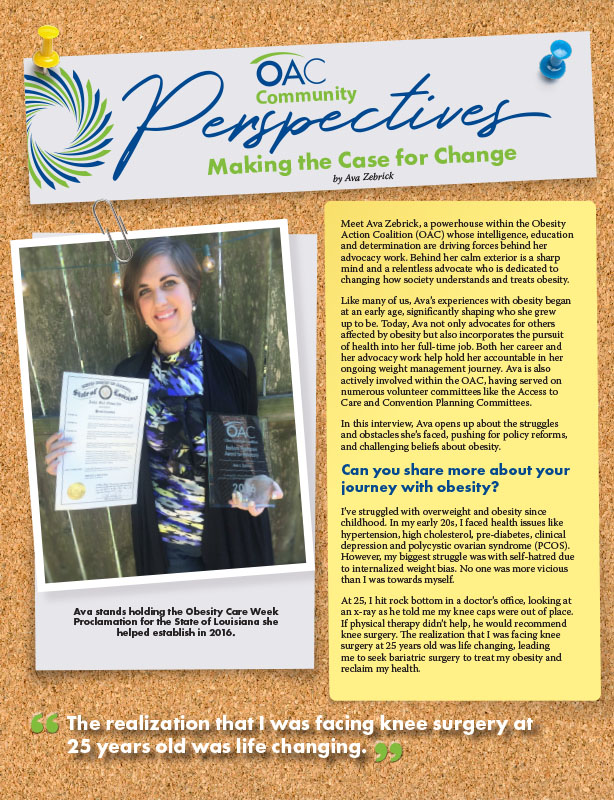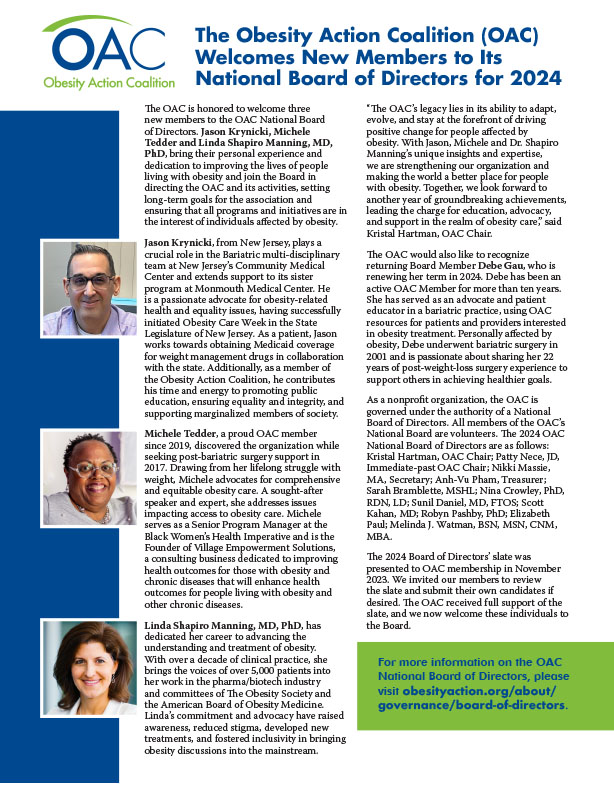OAC Community Perspectives: From Both Sides of the Therapy Table

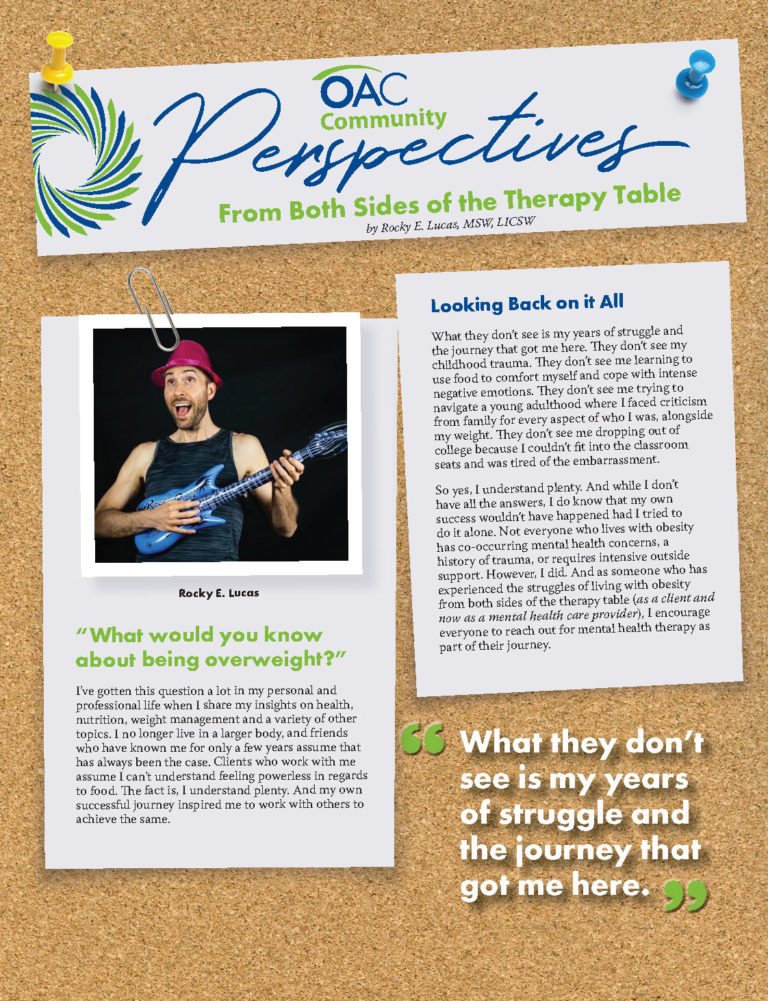
by Rocky E. Lucas, MSW, LICSW
Summer 2021
“What would you know about being overweight?”
I’ve gotten this question a lot in my personal and professional life when I share my insights on health, nutrition, weight management and a variety of other topics. I no longer live in a larger body, and friends who have known me for only a few years assume that has always been the case. Clients who work with me assume I can’t understand feeling powerless in regards to food. The fact is, I understand plenty. And my own successful journey inspired me to work with others to achieve the same.
Looking Back on it All
What they don’t see is my years of struggle and the journey that got me here. They don’t see my childhood trauma. They don’t see me learning to use food to comfort myself and cope with intense negative emotions. They don’t see me trying to navigate a young adulthood where I faced criticism from family for every aspect of who I was, alongside my weight. They don’t see me dropping out of college because I couldn’t fit into the classroom seats and was tired of the embarrassment.
So yes, I understand plenty. And while I don’t have all the answers, I do know that my own success wouldn’t have happened had I tried to do it alone. Not everyone who lives with obesity has co-occurring mental health concerns, a history of trauma, or requires intensive outside support. However, I did. And as someone who has experienced the struggles of living with obesity from both sides of the therapy table (as a client and now as a mental health care provider), I encourage everyone to reach out for mental health therapy as part of their journey.
Starting My Therapy Journey
After an entire lifetime of going it alone in my weight struggle journey, I finally reached out for help more than a decade ago via my Employee Assistance Program. At that time, in my late 20’s, I had lived with obesity my entire life – going from “husky” as a child to the recipient of stern lectures from family and medical providers about my “lack of control” and the poor job I was doing of “taking care of myself.” Like many who live with obesity, I internalized these messages. When I first sought out therapy, I did so because I wanted to learn the skills to maintain my restriction behaviors, seeing my binge cycles as a willpower issue I needed to learn to overcome.
However, what I found instead was freedom, validation and understanding. After spending my entire life thinking something was “wrong” with me, I began to see my food and eating habits as an understandable response to the stressors in my life. It began to make sense to me that as someone who was hurting, confused, and had not experienced emotional validation, I consistently turned to food for emotional support. As someone who was consumed by diet culture, it made sense that I would lose control and hope at each “failure.” Once it all began to make sense to me, I became more empowered to make change happen.
My Steps to Treatment
The process of mental health therapy will look different for everyone, but here is part of what those steps looked like for me. First, I realized that my desire to lose weight was taking up necessary emotional space and, in a sense, “blocking out” other issues which needed to be resolved first. Childhood trauma, family conflict, religious and sexual identity concerns – all of these things were left untreated while I focused solely on my weight and appearance. So, the first step in my new journey was putting “weight-loss” on the back burner while I focused on those bigger issues.
While working with my individual therapist, my treatment eventually branched out to other providers as well. I got established with a psychiatrist who placed me on a weight-loss medication which helped tremendously at that time for managing my cravings and appetite. I was also placed on another medication which helped me manage some of the other emotional issues that were disrupting my success. Working with a dietitian helped me focus on creating an eating pattern which would help me focus on health and maintenance until I could eventually be more focused on weight-loss and body composition changes. Later still, I began working with a group therapist, where I learned from others living with eating struggles about how they were navigating this journey.
Finally, working with a therapist (and other connected professionals) helped me create a plan and goals that worked for me. With so many competing ideas, theories and societal pressure, it can feel overwhelming to figure out what steps to take that are the “right” ones. Can you be body positive while at the same time wanting to change your body? Can you eat mindfully while at the same time eating with a focus on changing your body composition? These are not easy questions, and the answers may be different for different people. Therapy can be used as a sounding board to focus on exactly what is right for YOU.
Looking Through a New Lens
For me, my nine-year therapy journey concluded with multiple cosmetic surgeries that were necessary to remove the excess skin from the weight I lost. I have achieved a weight, a fitness level, a lifestyle and a body aesthetic that are pleasing to me. I know that what I achieved is partially a result of my privilege; being young, healthy, male, and having financial resources for treatment allowed me to achieve success that perhaps isn’t realistic for everyone. But after the success I experienced, to which I attribute all of the help I received, my goal as a therapist is to help others navigate their own journey.
I know what it’s like to live with obesity. I understand the stigma that those living with obesity face from friends, family, medical professionals and society at large. I also know that you can experience success when it comes to your health, nutrition and weight management goals. By partnering with a mental health therapist, you can increase your chances of success. As someone who has been on both sides of the therapy table, I invite you to embark on that journey for yourself.
About the Author:
Rocky E. Lucas, MSW, LICSW, is a Licensed Independent Clinical Social Worker in the states of Washington and West Virginia. His current professional roles are as a Counselor and Clinical Assistant Professor at the Washington State University College of Veterinary Medicine and as a remote clinical supervisor for Cabin Creek Health Systems in Charleston, West Virginia. As someone who spent much of his life living with obesity, he is passionate about connecting with and helping those who are living with obesity in whatever way works best for them.
Do You Want to Share Your Story?
Whether you have a story about navigating obesity, facing weight stigma or inspiring others, your voice is important. Visit the OAC’s story project at WeightoftheWorld.com to share yours today! Not sure what to say? Consider one of our example prompts to guide you.
If you would like your story to be featured in a future issue of Weight Matters Magazine, please email membership@obesityaction.org.
by Kendall Griffey, OAC Communications Manager Spring 2024 We have officially kicked off Your Weight Matters Regional…
Read Articleby Ava Zebrick Spring 2024 Meet Ava Zebrick, a powerhouse within the Obesity Action Coalition (OAC) whose…
Read ArticleThe OAC is honored to welcome three new members to the OAC National Board of Directors. Jason Krynicki,…
Read Article




